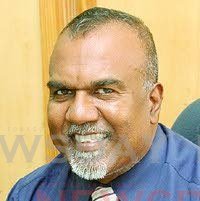The way forward

RAMESH LUTCHMEDIAL
THE CLAIMS by Guyana’s Competitions and Consumer Affairs Commission that Caribbean Airlines Ltd (CAL) has been “milking” Guyana to make up for losses on flights on the domestic air bridge, as reported in the Guyana Chronicle, prompted CAL to call on the Guyana government to petition the US authorities to allow CAL to fly non-stop between Guyana and the US without the need to transit through Trinidad.
However, this is easier said than done as it is not a simple matter. TT, Guyana and the US are signatories to the Convention on International Civil Aviation, commonly known as the Chicago Convention, and the Air Transit Agreement.
Article 6 of the Chicago Convention states that “no scheduled international air service may be operated over or into the territory of a contracting state, except with the special permission or other authorisation of that state, and in accordance with the terms of such permission or authorisation.”
The terms of such permission or authorisation are normally contained in bilateral air service agreements (BASAs) between two states. Major provisions of BASAs deal with safety, security, the designation of airlines by each state party, the grant of “rights” to the airlines of the state parties, commercial opportunities and fair competition. The terms of BASAs are normally reciprocal so that no state party is at a disadvantage.
Parties to the air transit agreement grant privileges to the airlines of each party in respect of scheduled international air services to fly across its territory without landing and to land for non-traffic purposes such as refuelling or for technical reasons.
Both TT and Guyana have signed open skies agreements with the US. These agreements are far more liberal than the traditional BASAs known as the Bermuda I and Bermuda II-type agreements with unlimited capacity and frequency.
The open skies BASAs allow airlines that are substantially owned and controlled by the parties, nationals of the parties or both to fly to the US from points behind via the state party – intermediate points – to any point in the US and beyond. Therefore, for CAL to operate flights to New York (JFK) from Guyana, the flight must originate in TT so that Guyana becomes an intermediate point. This is called a “fifth freedom right” and is permitted under the open skies BASA.
A direct CAL scheduled flight that originates in Guyana and terminates at JFK is a “seventh freedom” flight which is not permitted under the TT/US BASA. CAL can only exercise this right in respect of charter flights. Likewise, under the Guyana/US BASA, Guyana cannot normally designate CAL as an airline of Guyana since CAL is not substantially owned and controlled by Guyana, its nationals or both.
However, there is precedent for this as in 2011 the US permitted Jamaica to designate CAL to operate certain routes into the US from Jamaica based on the Jamaica/US open skies BASA. When talks broke down between the Jamaican government and Spirit Airlines regarding the operation of Air Jamaica routes into the US, negotiations began with CAL to operate these routes on behalf of Jamaica.
The US stated that it would consider giving favourable consideration to such an arrangement provided both Jamaica and TT have open skies arrangements with the US. A Jamaica/US open skies BASA was signed in 2002 and only the traditional BASA existed between the US and TT. The US leveraged the TT/Jamaica negotiations on the operation of the Air Jamaica routes into the US by CAL to get TT to commit to negotiate an open skies BASA with the US. The negotiated agreement was initialled between representatives of TT and the US on May 1, 2010.
However, in a dramatic move, the US requested the Manning administration sign the agreement before the scheduled general election that was imminent. As a result, the TT/US open skies BASA was signed on May 22, 2010, two days before the election.
The Competition and Consumer Affairs Commission conducted a recent study on the airline industry and recommended Guyana establish its own state-sponsored airline. An airline incorporated in Guyana and substantially owned and controlled by Guyana or its nationals or both cannot operate into the US as Guyana is not yet a category 1 country under the US FAA’s International Aviation Safety Assessment (IASA) programme. The US FAA only issues foreign air carrier operations specifications under its FAR Part 129 rules to airlines from countries that are category 1.
Guyana is in the process of establishing its safety oversight system based on the International Civil Aviation Organization’s eight critical elements related to personnel licensing, aircraft operations and airworthiness as a prerequisite to being designated a category 1 country under the US IASA programme.
The US is very resolute in protecting the economic interests of US airlines. There must be significant overarching economic considerations to leverage any variation to US air transport policy to allow CAL to operate direct flights between Guyana and the US. The US is one of Guyana’s most significant trading partners. US energy giant ExxonMobil is a major player in the development of Guyana’s offshore oil and gas industry.
Therefore, a way forward is for Guyana to negotiate with the US Department of Transport’s aviation policy section to permit Guyana to designate CAL to operate flights into the US based on the Guyana/US open skies agreement, similar to what was done by Jamaica. Guyana’s representations can be based on the need for regular and reliable air transportation linkages between the US and Guyana to support social and economic development.
It is the least Guyana can do as CAL and its predecessor BWIA have faithfully served Guyana and its North American diaspora for decades.
Ramesh Lutchmedial is a retired director general of Civil Aviation and a former member of the TT Air Services Negotiating Committee

Comments
"The way forward"